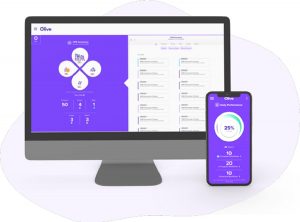Startup Olive AI, Inc. has developed an AI-powered workforce solution built specifically for healthcare, reproducing repetitive and time-consuming manual tasks employees do in a more efficient and accurate manner.
The company’s software is currently being deployed by more than 600 hospitals in the U.S. including 22% of the top 100 health systems in the country. The software performs data analysis for prior authorizations, insurance claims, supply chains, and high-volume tasks and processes in departments such as human resources, finance, accounting, and clinical administration. Olive, as an all-in-one digital employee, monitors performance, identifies improvements, onboards quickly, gets smarter over time, and find opportunities for new work.
Earlier this year, the startup could not have predicted how COVID-19 pandemic would impact its business, but figures show that market’s demand has dramatically grown in the past months. Olive AI has now reached a $1.5 billion valuation after a recent funding round of $225.5 million led by Tiger Global Management and has secured more than $385 million in financing in the last nine months and around $445 million since its inception in 2012.
“Just as the events on September 11, 2001 led to accelerated adoption of technology for national security operations, the current health crisis has quickly brought down technology barriers for health systems,” explained Sean Lane, CEO of Olive AI.
Before the public health crisis, hospitals were already implementing AI solutions to deal with administrative tasks, however the pandemic has accelerated adoption by forcing hospitals to assess their costs and determine what really matters. Olive empowers hospitals to outsource and automate routine tasks to save time, minimize errors, and reduce work burden so that their staff can focus on higher-value tasks and patient care while reducing costs.
As for the future, Olive plans to make use of the newly raised capital for product development and new hires. The speed of innovation should indeed continue after the public health crisis; as stated by global healthcare solutions director at Google Cloud, "digital is here to stay, telehealth is here to stay.”























